
The SUN Movement is working with 19 countries across French-speaking Africa to drive collaboration at all levels of society towards more holistic and sustainable nutrition solutions.
Through its partnership with SUN, Côte d’Ivoire has emerged as a nutrition champion by successfully merging national leadership and advocacy with grassroots strategies to tackle malnutrition.
Through its partnership with SUN, Côte d’Ivoire has emerged as a nutrition champion by successfully merging national leadership and advocacy with grassroots strategies to tackle malnutrition.
Francophone Africa: collaborative pathways to better nutrition
The SUN Francophone Africa region covers 19 French-speaking countries, the majority located in Western and Central Africa. The region faces a challenging nutrition landscape, with some of the highest rates of stunting, wasting and anaemia globally.
Effectively addressing malnutrition calls for innovation and collaboration across multiple sectors of government and civil society to create sustainable impact.
Effectively addressing malnutrition calls for innovation and collaboration across multiple sectors of government and civil society to create sustainable impact.
Mapping malnutrition in the region
Western Africa:
70.4 million people undernourished
6.7% of children under five affected by wasting
(Global avg: 6.8%)
(Global avg: 6.8%)
14.3% of babies born with low birthweight
(Global avg: 14.7%)
(Global avg: 14.7%)
More than half (51.8%) of women aged 15-49 are anaemic
(Global avg: 29.9%)
(Global avg: 29.9%)
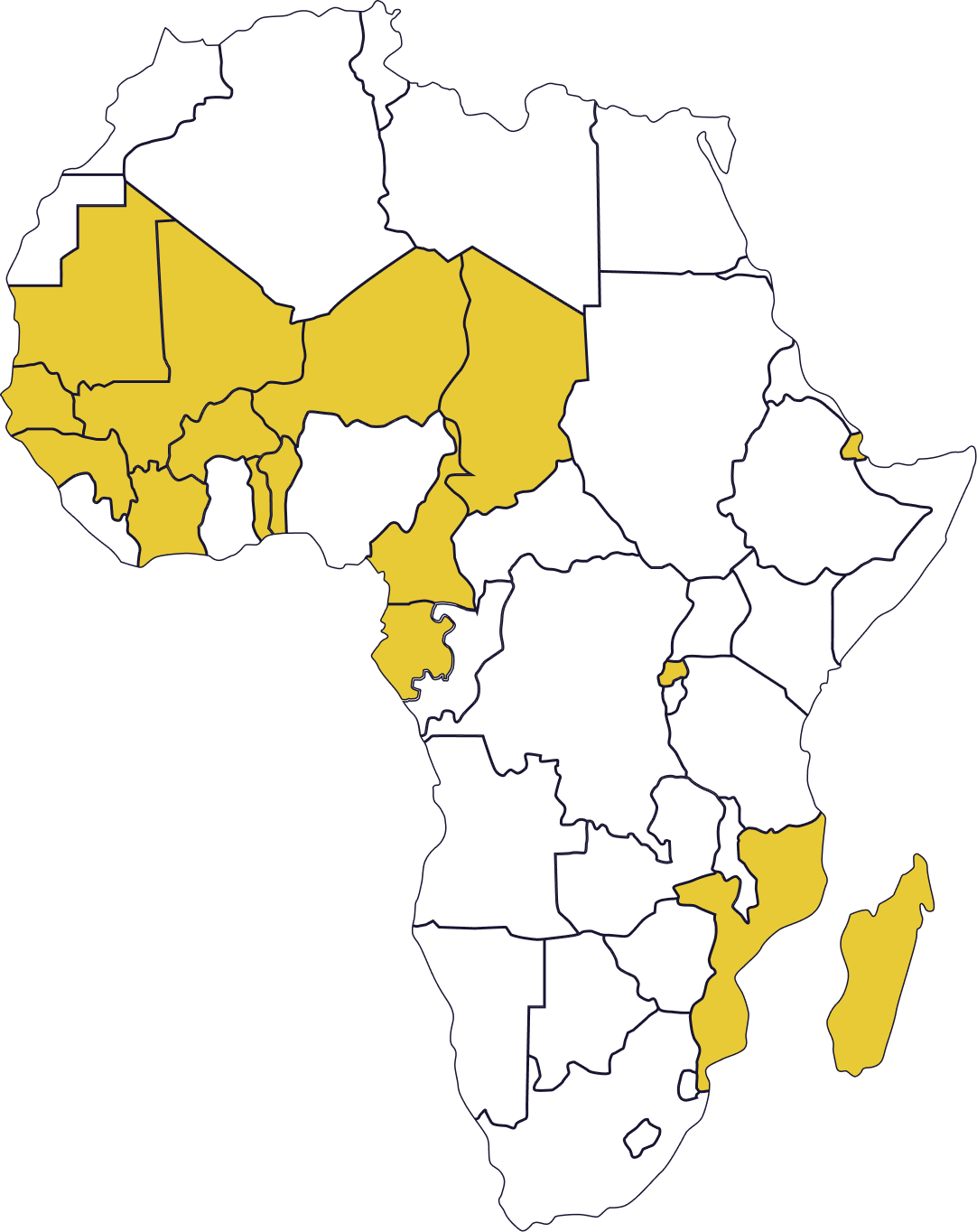
Map showing the SUN Francophone Africa regional hub. Data above refers to the UN region of West Africa.

Côte d’Ivoire:
18% of babies have low birthweight.
18% of babies have low birthweight.

Niger:
Nearly 1 in 2 children are stunted.
Nearly 1 in 2 children are stunted.

Madagascar:
7.2% of children under five affected by wasting.
7.2% of children under five affected by wasting.

Guinea-Bissau:
32% of population undernourished.
32% of population undernourished.

Guinea:
5.6% of children under five are overweight.
5.6% of children under five are overweight.

Mauritania:
More than 1 in 5 adults are obese.
More than 1 in 5 adults are obese.

Mali:
2.6 million women aged 15-49 affected by anaemia.
2.6 million women aged 15-49 affected by anaemia.
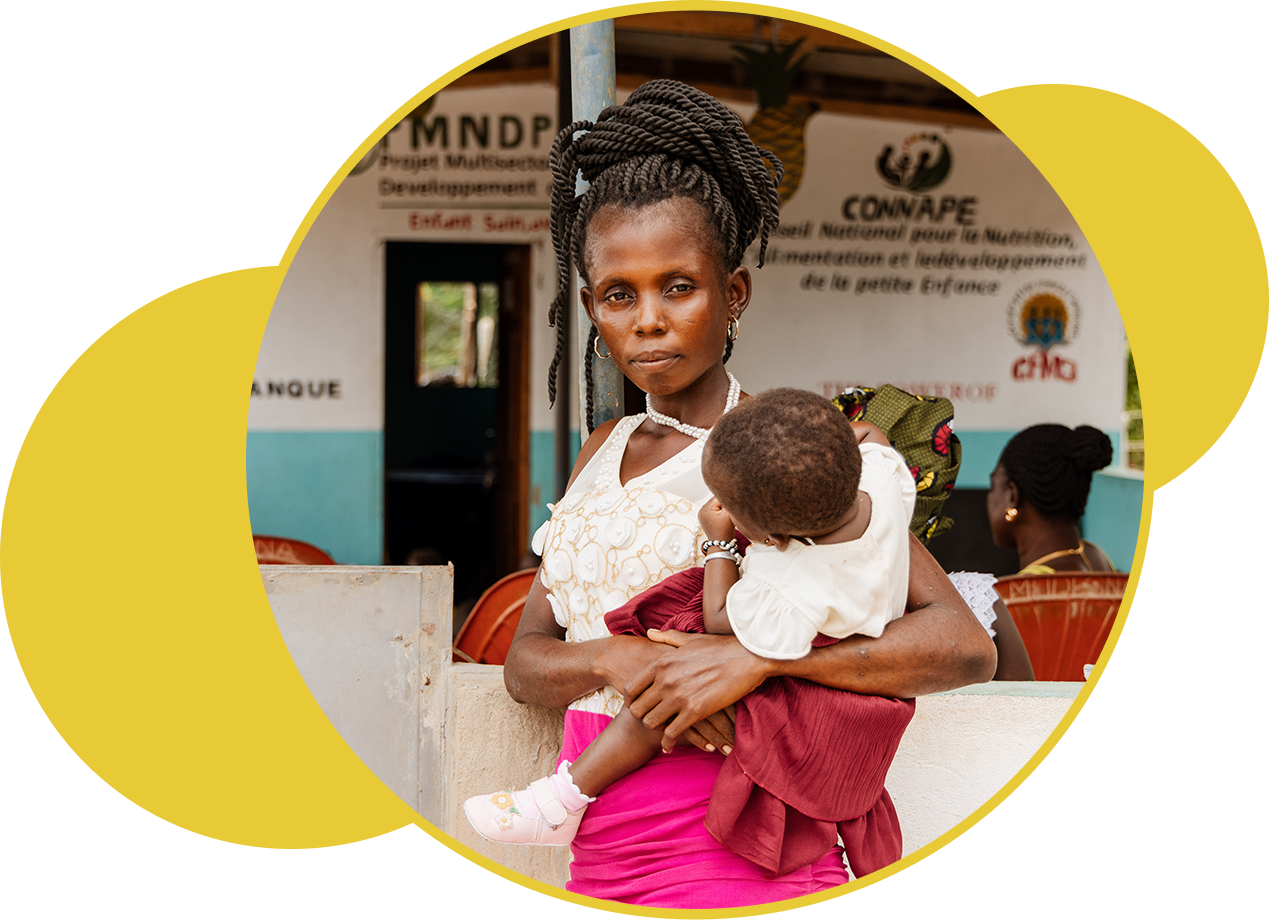
Factors contributing
to food insecurity & malnutrition:
Widespread poverty
Rising food prices
Climate change
Conflict and instability
Limited access to services
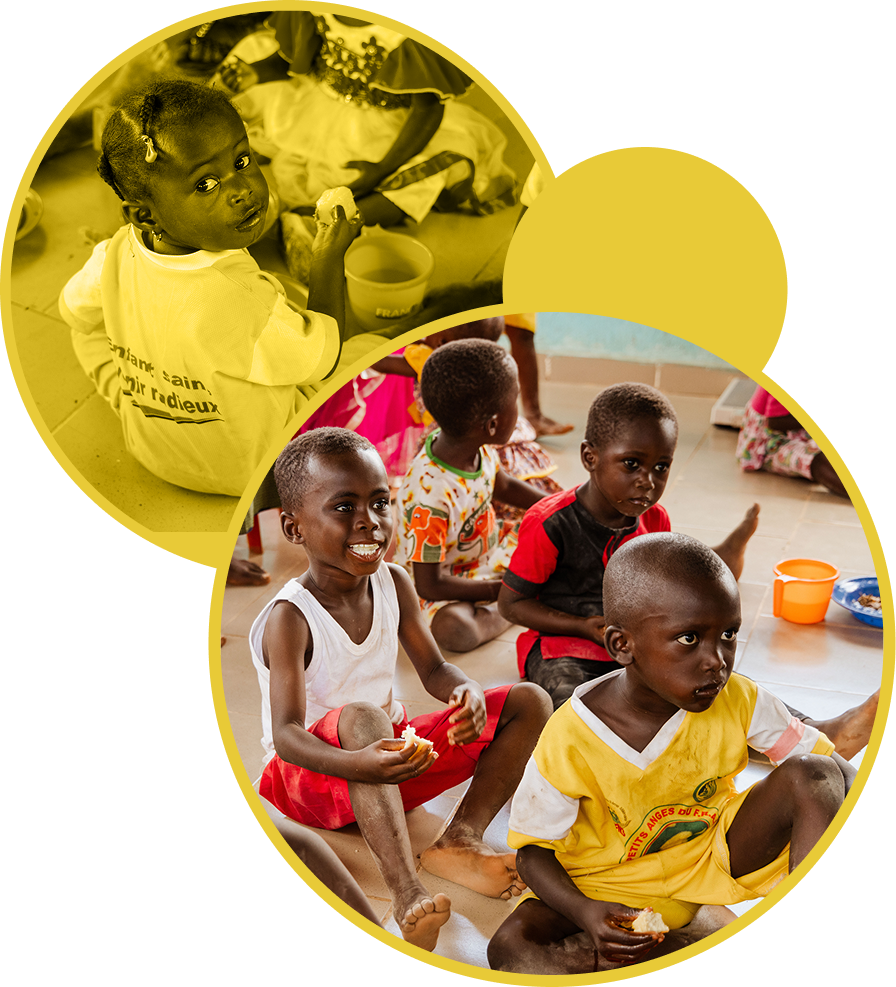
The SUN Movement is driving impact across the region by mobilising resources, providing technical support, and strengthening national nutrition efforts.
By fostering coordination across governments and supporting countries in meeting their Nutrition for Growth (N4G) commitments, SUN is helping to create a more unified, effective approach to tackling malnutrition.
By fostering coordination across governments and supporting countries in meeting their Nutrition for Growth (N4G) commitments, SUN is helping to create a more unified, effective approach to tackling malnutrition.
Country initiatives fuelling progress
Overcoming malnutrition in the region calls for a whole-of-society effort, with governments steering the way and communities shaping and owning solutions.
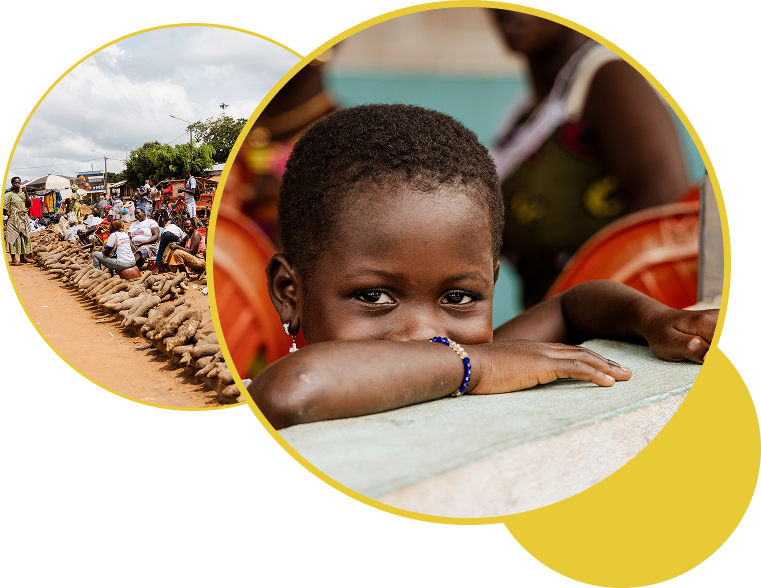
Case study:
Côte d'Ivoire
1 in 5 children under 5 years affected by stunting
6% of children under 5 suffer from wasting
Anaemia affects more than 50% of women of childbearing age
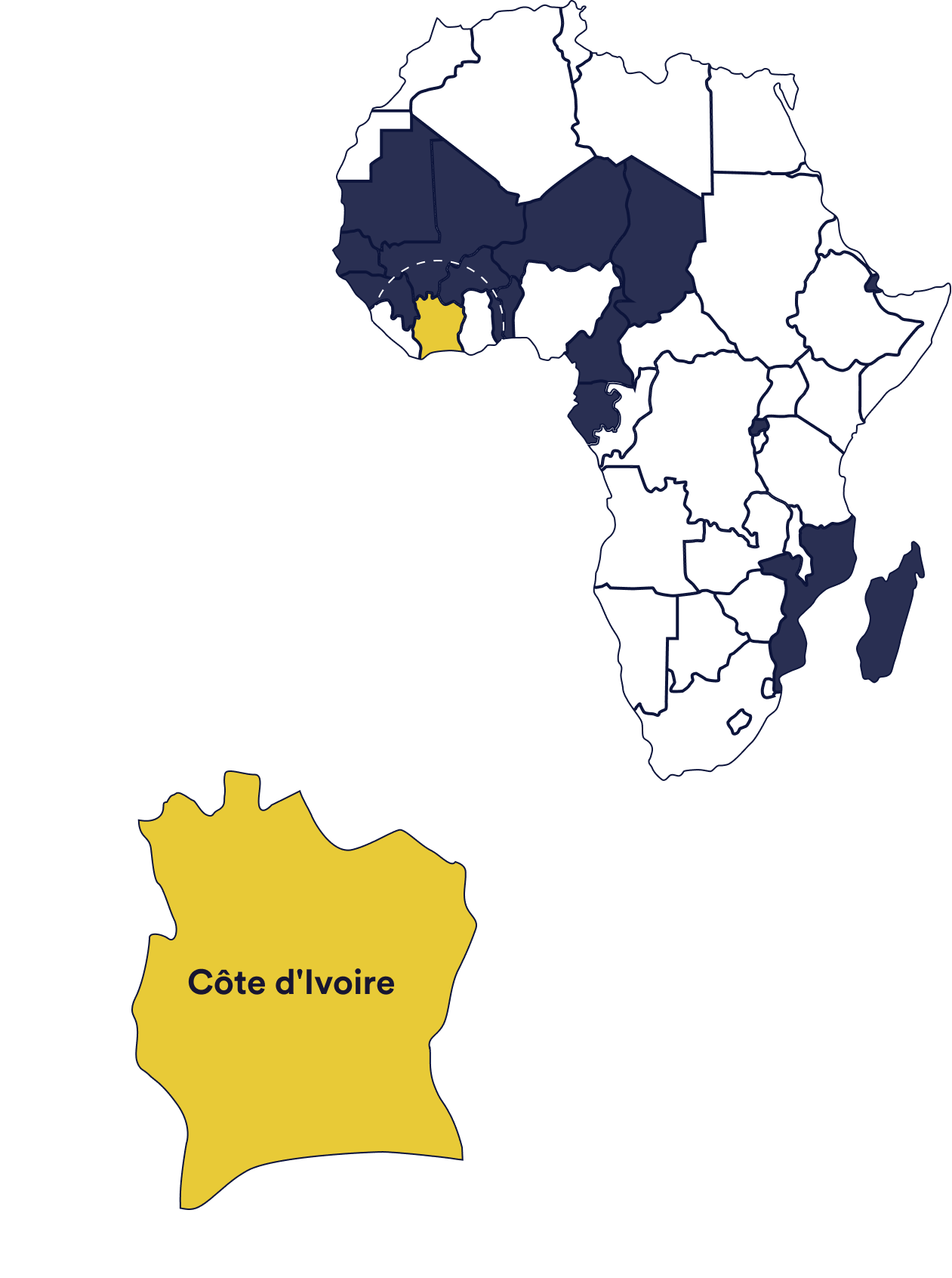

Côte d'Ivoire’s success in tackling malnutrition lies in its powerful blend of government leadership, advocacy, and community-driven solutions, creating a sustainable path for progress.
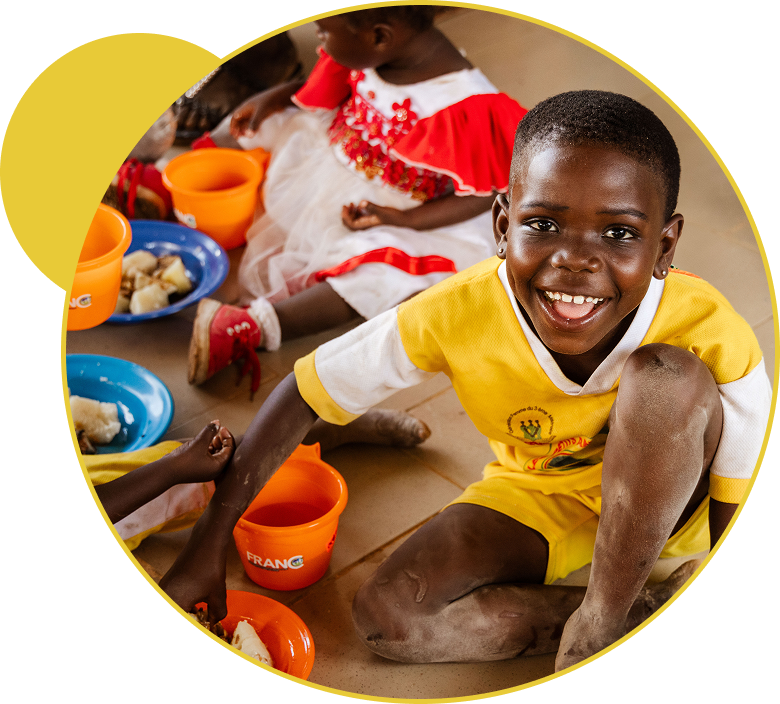
Centring nutrition
in the national agenda
Since joining the SUN Movement in 2013, Côte d'Ivoire has made nutrition a cornerstone of its national development agenda, placing the entire nutrition sector under the direct responsibility of the office of the Vice President.
Coordinated efforts driven by high level political will have brought together multiple sectors and stakeholders to close critical gaps and drive national nutrition priorities.
Coordinated efforts driven by high level political will have brought together multiple sectors and stakeholders to close critical gaps and drive national nutrition priorities.
Faced with the multiple challenges facing countries, we must act urgently in a collective effort, creating a sustainable and conducive institutional, political, and financial environment for nutrition...This is the only guarantee of economic, social, and human development for our communities…I urge all actors to continue to mobilize and support the Government so that, together, we can meet the challenges and fully achieve our nutrition goals..”
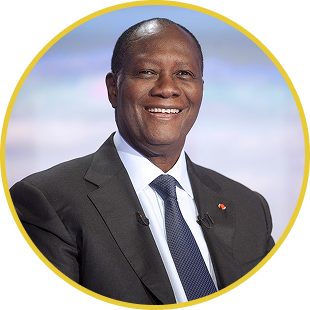
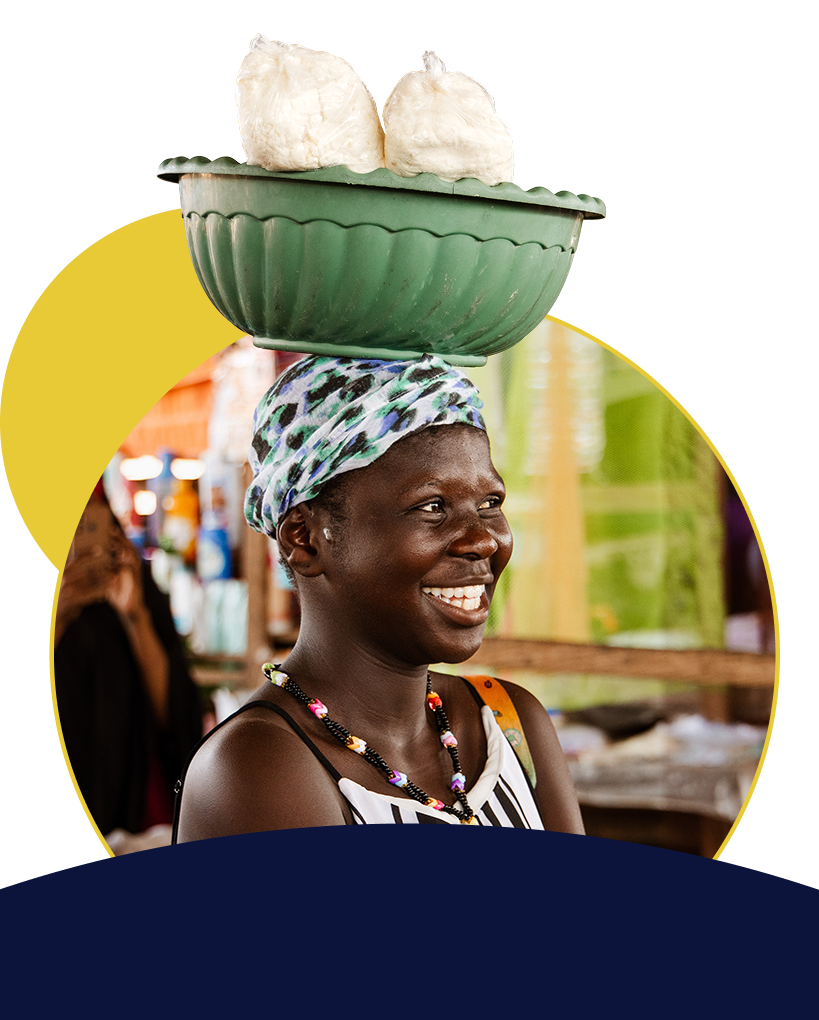
Nutrition is woven into Côte d’Ivoire’s national development framework:
Nutrition
Vision Côte d'Ivoire 2030
Côte d'Ivoire 2040 prospective study
Côte d'Ivoire 2040 prospective study
Community NuClear responsibilities across sectorstrition Policy
Community Nutrition Policy
Common Results Framework
Nutrition embedded in Public Investment Programme
Vision Côte d'Ivoire 2030
Nutrition
Côte d'Ivoire 2040 prospective study
National Development Plans
Clear responsibilities across sectors
Common Results Framework
Community Nutrition Policy
Nutrition embedded in Public Investment Programme
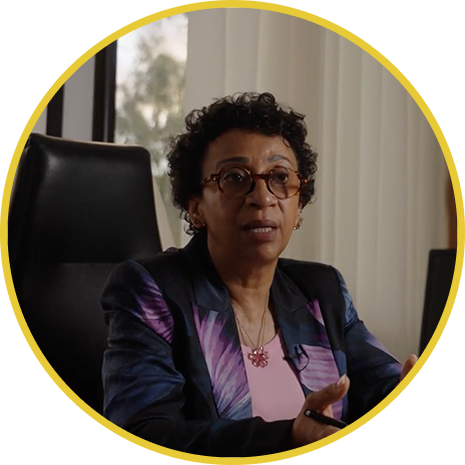
Each ministry, each sector, and five ministerial departments have a community-focused policy. But with nutrition, we can’t have a separate policy for each one. We needed to create a common policy, and that’s how we began to draft the community nutrition policy. And this community nutrition policy had to define how to work together.”
Turning national vision into localized solutions
Building on its strong national leadership, Côte d'Ivoire has successfully translated the government’s vision for a healthier, more nourished population into a reality on the ground through the creation of Centres for Strengthening Community Nutrition Activities and Early Childhood Development (or ‘FRANC’ centres).
The FRANC serves as a hub, an information center fostering behaviour change, and a space for learning best practices in child and maternal nutrition, as well as early childhood stimulation and development. It represents a comprehensive community-based framework for service delivery, operating through a participatory approach.

FRANC centres take a holistic approach that contributes to many of the SDGs:
- Social protection services: FRANC centres provide access to low-cost, community-based social protection, helping vulnerable families escape poverty.
- Income-generating activities (IGAs): Community agents are trained and supported in IGAs, improving financial independence and economic conditions in communities.
- Food security initiatives: Projects like household and community vegetable gardens contribute to sustainable food sources and reduce poverty.
- Child feeding programs: Centres offer programs with diversified, nutritious diets for children, addressing immediate nutritional needs.
- Malnutrition management: Community-managed care tackles wasting and undernutrition through regular child screenings, home visits, and distribution of micronutrients.
- Food production support: Vegetable gardens and small livestock initiatives enhance local food systems, creating sustainable food sources.
- Healthcare services: Centres provide vaccinations, pre- and postnatal consultations, and family planning services.
- Disease management: Programs address common health issues like diarrhoea and fever, while promoting breastfeeding and continued growth monitoring.
- Health education: Caregivers receive guidance on nutrition and hygiene, benefitting children and the health of the community.
- Literacy programs: Centres provide educational opportunities for women and youth, empowering them with practical knowledge and skills.
- Early childhood development (ECD): Children are prepared for school through ECD initiatives including cognitive and motor skill development activities, fostering a safe and stimulating learning environment.
- Parental education: Mothers and caregivers are equipped with knowledge about nutrition and child development, enhancing education outcomes.
- Women’s empowerment: Literacy programs and leadership opportunities for women (36% of facilitators are female) advance gender equality.
- Safe daycare: Daycare facilities enable mothers to work or study, improving their participation in economic and educational activities.
- Health services for women: Programs focus on maternal health, including prenatal care and breastfeeding support.
- WASH initiatives: Centres improve access to clean water through purification systems and better village hydraulics.
- Hygiene education: Children learn proper sanitation practices, supported by on-site toilets and hygiene facilities.
- Employment opportunities: Community agents are trained and supported in income-generating activities or compensated via social benefits.
- Economic development: Local agricultural initiatives like vegetable gardens and livestock projects stimulate community economies.
- Inclusive services: FRANC centres prioritise underserved areas, ensuring access to healthcare, nutrition, and education for the most vulnerable.
- Focus on women and children: Interventions target key groups, including pregnant women, breastfeeding mothers, and children under five
- Community-driven governance: Local steering committees and community agents ensure grassroots ownership and sustainable implementation.
- Sustainable food systems: On-site gardens and agricultural education create lasting solutions for food security.
- Employment opportunities: Community agents are trained and supported in income-generating activities or compensated via social benefits.
- Economic development: Local agricultural initiatives like vegetable gardens and livestock projects stimulate community economies.
- Strong governance: Local steering committees and alignment with national policies foster accountability and institutional strength.
- Community alignment: Partnerships between NGOs, governments, and grassroots stakeholders improve social cohesion.
- International support: Collaboration with the World Bank, Islamic Development Bank, and African Development Bank ensures robust financial backing.
- Civil society involvement: Local NGOs act as Local Execution Agencies (LEAs), connecting communities with governments and services.
It serves as a refuge for mothers during moments of difficulty. When they have concerns, they come here, and with the support of trained volunteers who make home visits to understand their problems, they can be reminded, for instance, about their hospital appointments. This helps women, whether they are pregnant or not, to stay on track with their health and also adopt good nutritional practices.”
When I was pregnant, the foetus nearly died. But I had the support of the nurses who helped and treated me. When I gave birth, the child was still sick and suffering… But since the child was treated by the nurses, she is better… she doesn’t get sick like before. Currently, my child is walking, feels much better, and I can do my farming activities.”

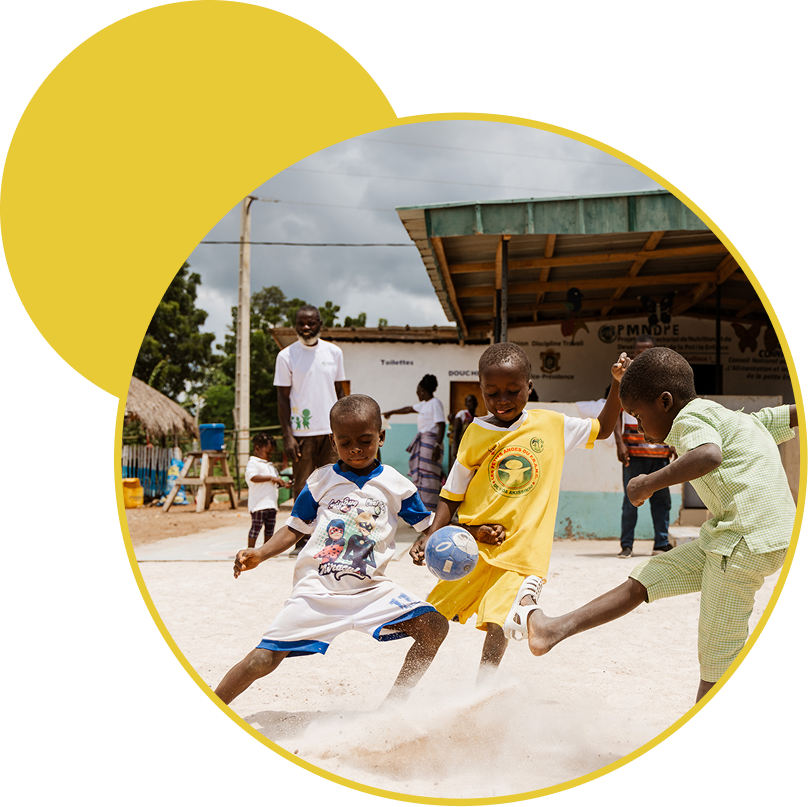
FRANC Centres have been established in 2,365 (out of 8,500) villages across 14 regions. They are strategically positioned close to remote villages that lack easy access to existing health facilities, ensuring countrywide coverage for nutrition-screening.
DISTRIBUTION OF FRANCs BY REGION
AS OF MAY 31, 2023
AS OF MAY 31, 2023
DISTRIBUTION OF FRANCs BY REGION
AS OF MAY 31, 2025
AS OF MAY 31, 2025
Region with FRANC
Region without FRANC
The project aims to reach 80% coverage by 2027 under the new multisectoral strategic plan (PNMN) 2024-2027.
With thanks to:

Impact by the numbers
The FRANC Centres have enhanced community resilience in multiple areas including improved nutrition and nutrition education, breastfeeding, food security, skills transfer, literacy, health and sanitation, as well as strengthened local coordination.
723,219 children under five (66% of project target) screened every two months for nutritional status, and cognitive and psychomotor development.
317,847 pregnant or breastfeeding women (120% of project target) benefitting from community health services.
83% of pregnant women have health cards, and most had attended their first prenatal check-up.
23,650 community agents (FRANC facilitators) mobilised across the project regions.
Over 70% of FRANC Centres considered effective in managing Moderate Acute Malnutrition in children.
Malnutrition rates have dropped significantly nationwide.

There have been real improvements. Children are better prepared to tackle the first-grade classes and the primary school classes.”
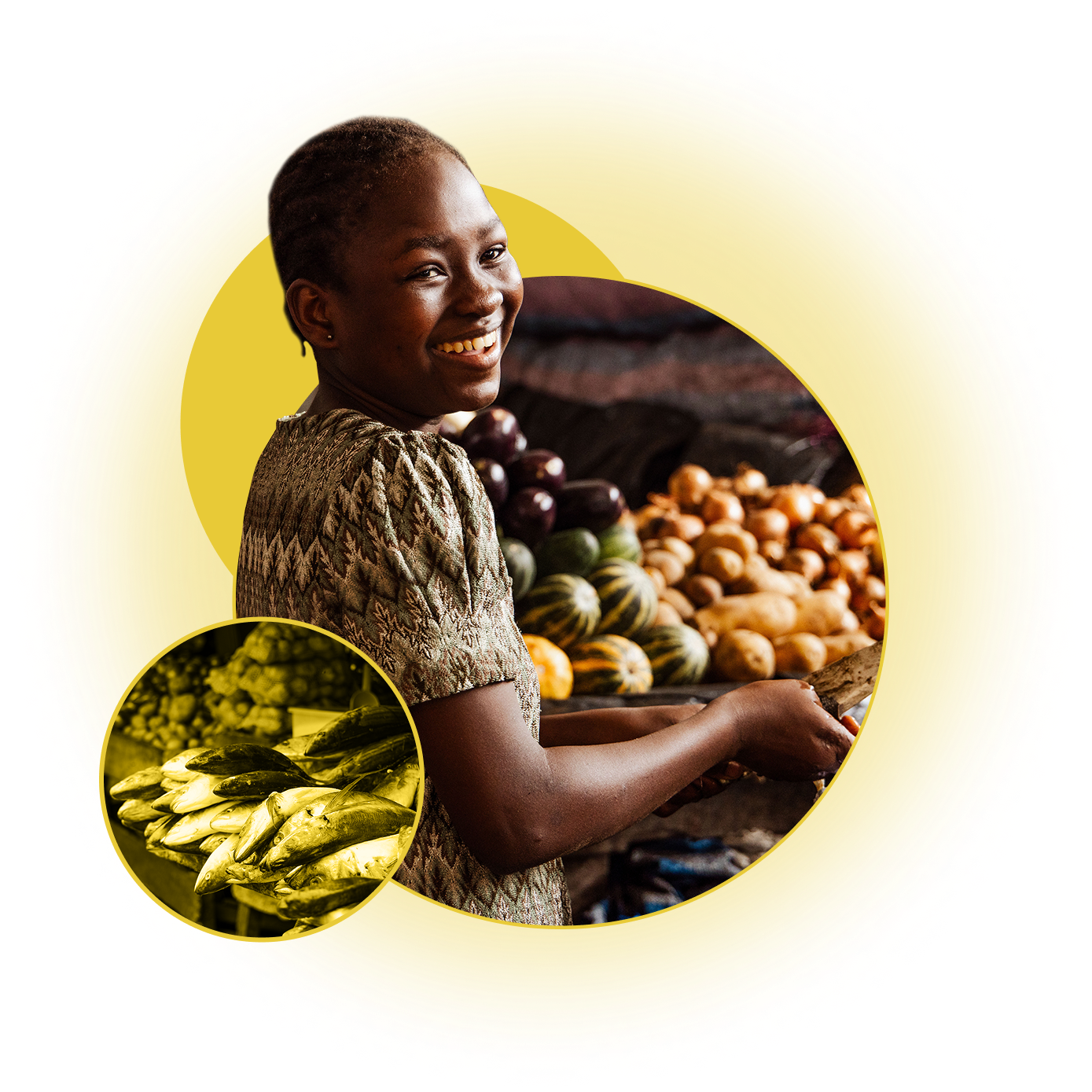
Championing nutrition
on the global stage
Côte d’Ivoire has emerged as a leader in the fight against malnutrition, leveraging international partnerships and high-level advocacy to drive progress. Through strong leadership and collaboration, the country is shaping regional and global nutrition agendas.
Advocacy and leadership:
President Alassane Ouattara, a champion of the SUN Movement since 2017 and an African Leader for Nutrition, successfully advocated for the African Union to dedicate 2022 as the "Year of Nutrition."
CERFAM – a hub for collaboration:
Under the leadership of the Vice-President, Côte d’Ivoire hosts the Regional Centre of Excellence Against Hunger and Malnutrition (CERFAM) in Abidjan, fostering south-south collaboration and knowledge sharing among 19 African nations.
Award of
Excellence:
Côte d’Ivoire has introduced the Award of Excellence for Food Security and Nutrition, a recognition programme to celebrate the achievements of states and stakeholders in promoting nutrition and food security.
Côte d'Ivoire has been a driving force, not only in the West African sub-region, but in the Francophone world.
We call on all countries, especially African nations, to rise to the challenge of creating conditions that contribute to the health of their populations. This must be a priority for governments. It’s not just about Côte d’Ivoire, but about setting a model that others can follow.”
Charting
the path forward
Côte d’Ivoire’s progress in tackling malnutrition demonstrates the power of multisectoral approaches and community-driven solutions. As the country sets its sights on expanding FRANC Centres and achieving national coverage, it aims to inspire neighbouring countries with a replicable model of success.
With continued support from international partners and local communities, Côte d’Ivoire is committed to driving sustainable change and contributing to global efforts to end malnutrition.
With continued support from international partners and local communities, Côte d’Ivoire is committed to driving sustainable change and contributing to global efforts to end malnutrition.
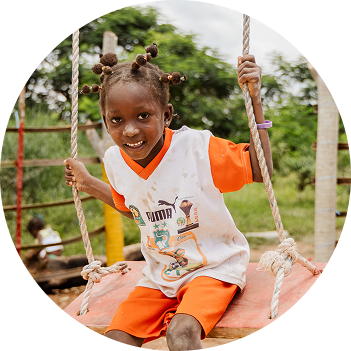
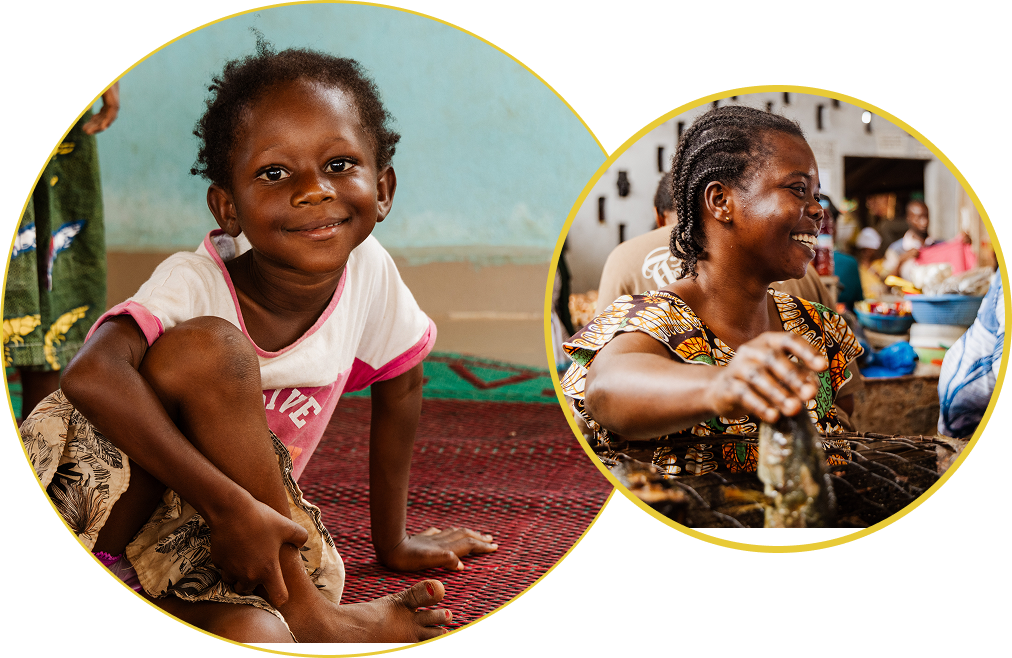



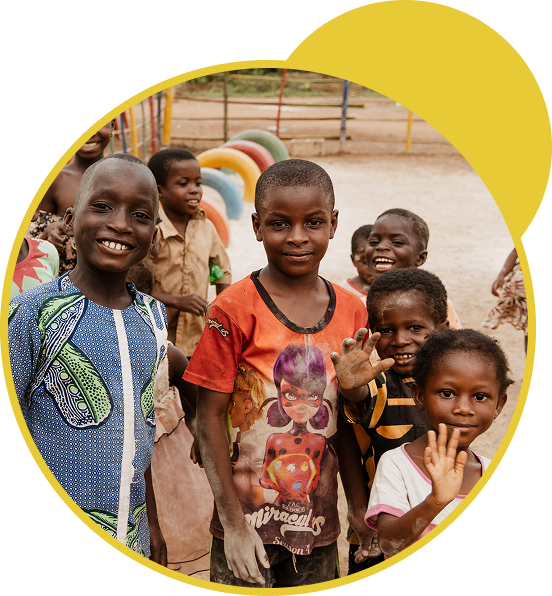
 English
English Français
Français Español
Español